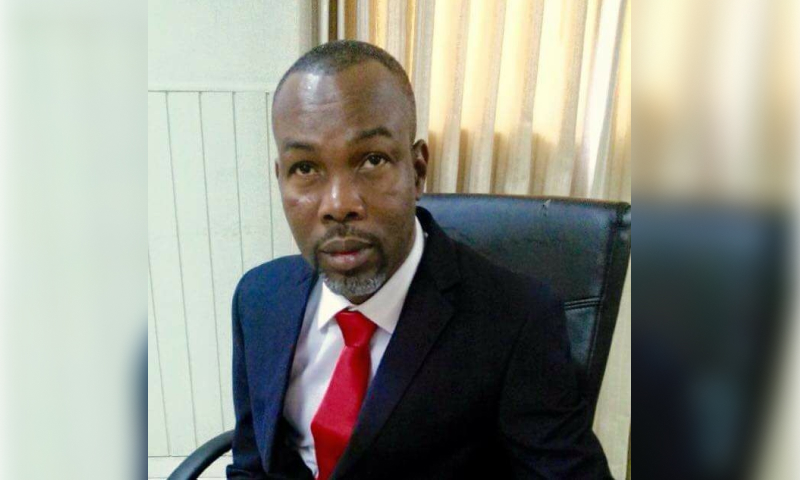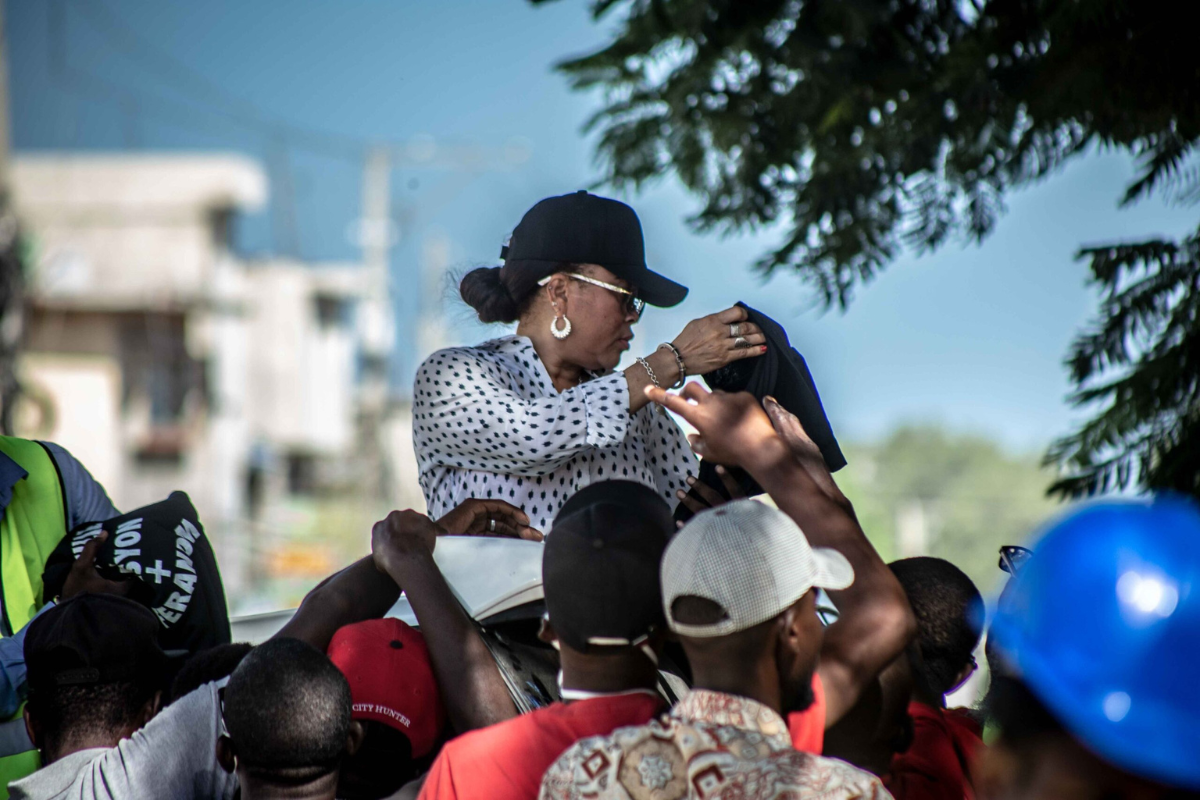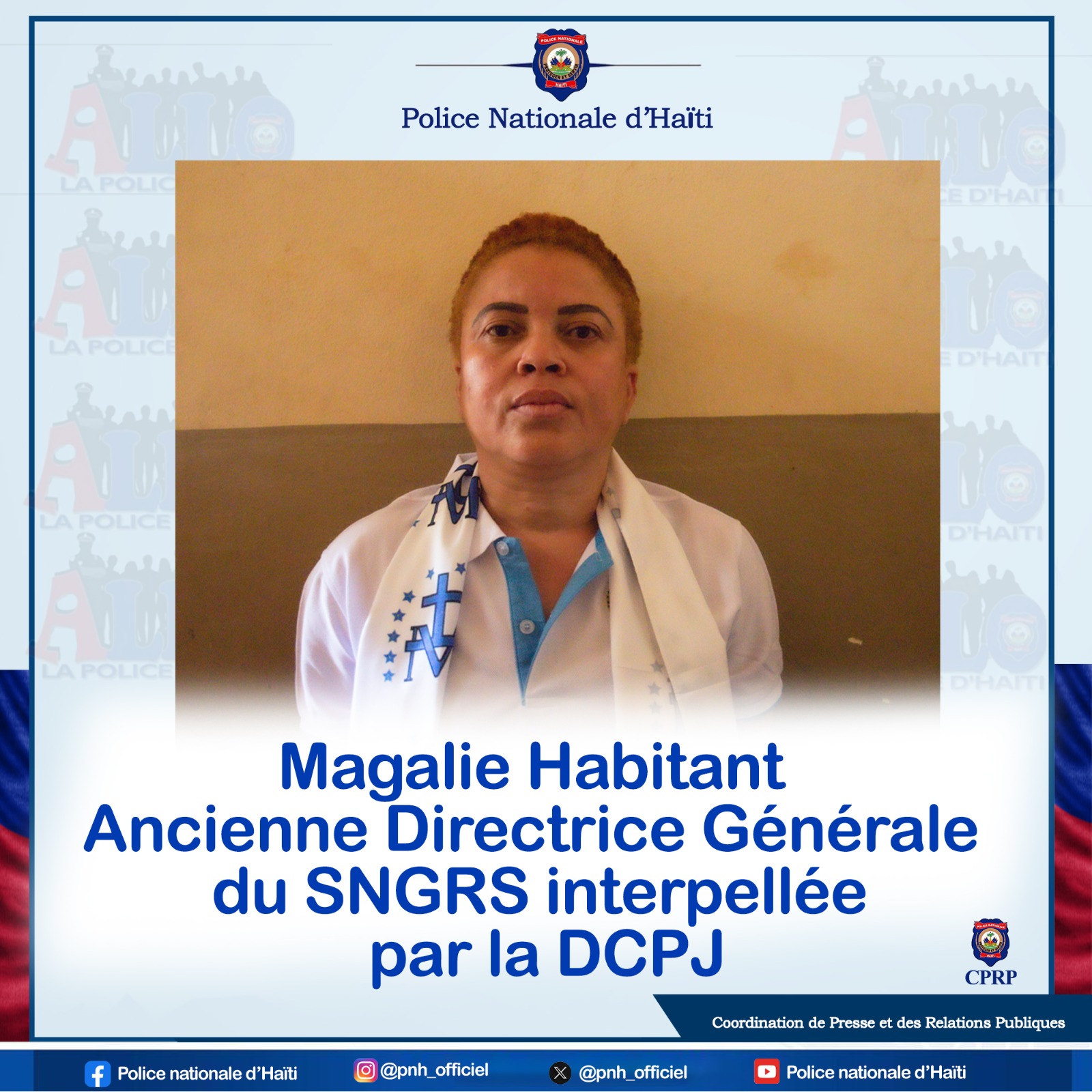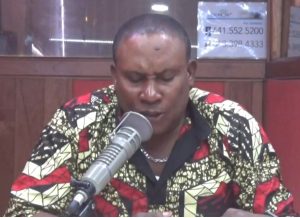The arrest of Prophane Victor, a former deputy for Artibonite, has become a defining moment in Haiti’s fight against organized crime and corruption. Victor’s detention by the Central Directorate of the Judicial Police (DCPJ) has revealed alarming details about his alleged involvement in illegal arms trafficking, gang violence, and human rights violations.
However, his arrest is just one piece of a larger puzzle. Other significant figures, such as Magalie Habitant, have also come under scrutiny. Habitant’s ongoing interrogation has reportedly provided crucial leads that contributed to Victor’s capture.
Prophane Victor: A Power Player with a Dark Side
Victor, who served as the deputy for Artibonite from 2016 to 2020, was once a prominent political figure. Before entering politics, he worked as a customs officer and built a reputation as a strategic operator.
However, his name has long been associated with allegations of criminal activities. Investigators claim that Victor used his political influence to arm rival gangs, incite violence, and orchestrate deadly clashes in the Artibonite region and beyond.

Victor has also been sanctioned by the United Nations, Canada, and the United States. These sanctions stem from accusations of establishing and supporting armed groups in Haiti, facilitating the trafficking of weapons and ammunition, and violating human rights through connections with violent gangs.
His actions not only destabilized communities but also solidified his role as a key figure in Haiti’s web of criminal networks.
Magalie Habitant: The Catalyst for New Revelations
While Prophane Victor’s arrest has dominated headlines, the role of Magalie Habitant cannot be overlooked. A well-known public figure, Habitant once held a leadership role under the late President Jovenel Moïse. She has now become a focal point in the investigation.
Sources reveal that information extracted during her questioning has provided key insights into the operations of armed groups. Conversations retrieved from confiscated devices allegedly show compromising exchanges between Habitant and members of criminal organizations.

These findings have deepened the investigation, linking her to potential illicit activities. They also shed light on her role in Haiti’s political and criminal landscape.
The Arrest Operation and Its Aftermath
Prophane Victor’s arrest was carried out during a carefully planned DCPJ operation. Law enforcement uncovered evidence that allegedly ties him to arms trafficking and coordination with gang leaders.
Reports suggest that his capture came shortly after the interrogation of Habitant. Her statements reportedly provided leads that strengthened the case against Victor.
The operation has been hailed as a significant achievement by the DCPJ. However, it has also raised questions about the depth of Victor’s connections and the extent of his alleged criminal network.
International Sanctions and Implications
Victor’s arrest has drawn international attention. He is a sanctioned individual by the United Nations, Canada, and the United States. These sanctions include asset freezes, travel bans, and restrictions on business dealings.
The allegations against him include supporting and organizing armed groups, facilitating arms trafficking and ammunition sales, and contributing to human rights violations through violence.
These sanctions highlight the global ramifications of Victor’s actions. His arrest represents a significant step in the broader context of Haiti’s fight against crime.
A New Chapter for Justice?
The arrests of Prophane Victor and the ongoing investigation into Magalie Habitant symbolize progress in holding powerful figures accountable. For years, many Haitians have doubted the ability of law enforcement to confront the entrenched alliances between political elites and criminal networks.
These recent developments offer a glimmer of hope. However, experts caution that this is only the beginning. Dismantling Haiti’s deeply rooted criminal infrastructure will require sustained efforts, transparency, and international cooperation.
A Call for Broader Accountability
Public reactions to these arrests have been mixed. Some view Victor’s detention as a symbolic victory, while others see it as just the “tip of the iceberg.” Investigators suggest there are many more individuals complicit in sustaining Haiti’s cycle of violence and corruption.
The arrests must serve as a wake-up call for Haiti’s government, justice system, and the international community. Without a comprehensive strategy to address the root causes of instability, Haiti risks falling back into the patterns of impunity that have plagued it for decades.
Conclusion
The arrests of Prophane Victor and the interrogation of Magalie Habitant have set the stage for what could be a turning point in Haiti’s struggle against corruption and organized crime.

Victor’s alleged actions highlight the dangerous interplay between politics and criminal networks, while Habitant’s involvement points to the broader network of complicity.
For Haiti to move forward, these actions must form the foundation for lasting reform. By pursuing justice without fear or favor, the country can rebuild trust in its institutions and create a safer, more stable future for its people.


